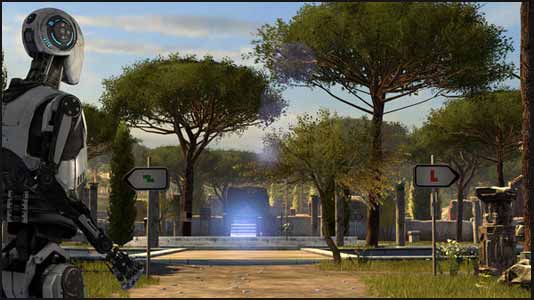|
Click here to return to the main site. PC Game Review
Puzzle games have always been a popular genre, but one which seems to have died down to a mere trickle in recent years. So we can only thank developers Croteam for having faith in the format and creating the excellent The Talos Principle. Talos has a surprisingly good combination of strong narrative, with a philosophical bent, excellent soundtrack and beautiful graphics. Graphically the game is very impressive; the ruined buildings are almost photo realistic. The slight rustling of the many trees creates a restful, dappled effect on both you and the ground, the overall effect is that of being in Italy on a warm summer's evening.
If you want to pick something up, the game prompts you when this is something you can interact with and provides a nice pictogram to tell you which mouse button to press. The graphics and sound can all be altered, but to get the immersive nature of the game it's best to play it at the highest setting your computer will allow. You can turn off the music, but I'm not sure why you would want to. The melodious chanting has elements of high church, and combined with the visuals it gives the game both a meditative restfulness as well as imparting that you are engaged in something of importance.
The first task is to actually get into the garden, which is achieved by picking up and moving jammers which allows you to open otherwise blocked doors and bypass sentinels. If you get cocky, and die, the game literally rewinds time in front of your eyes depositing you back at the last nearest checkpoint, which are generously numerous. Along the way you discover that your invisible benefactor has created puzzle mazes across the land, each containing a Sigel. Your purpose is to work your way through each of them, obtain the Sigel, which - and the big man gets a bit vague here - by doing so you will help future generations and obtain eternal life.
As the game progresses you discover new beings to interact with, through whom you discover some idea of what happened to the human race. You also discover that this new paradise comes with dissenting voices and the occasional glitching, which points to the possibility that all is not what is seems. The puzzles also become increasingly more difficult, but then, you are given the tools to solve them all, whether it’s a fan to get to higher places or even the ability to record and interact with time allowing you to be twice in one place simultaneously.
The game does have a number of differing endings and the resolution is a good mark of your own feelings of individualism. In the end Talos is easily one of the top five games around at the moment. 9 Charles Packer
|
|---|
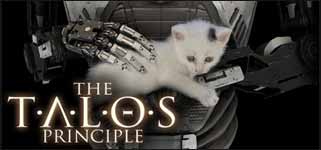
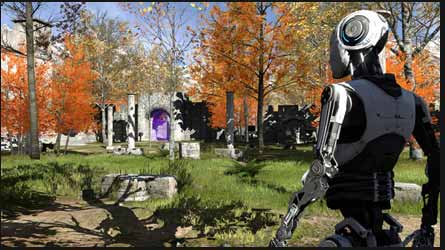 The game is highly configurable and you can change options for the keyboard and mouse combination as well as your controller pad. The game is pretty responsive and I didn’t even notice my usual dislike of playing with a keyboard. Partly because it’s pretty easy, given the pace is more cerebral and partially because the number of commands is limited, so you do not have to search the keyboard for the right button.
The game is highly configurable and you can change options for the keyboard and mouse combination as well as your controller pad. The game is pretty responsive and I didn’t even notice my usual dislike of playing with a keyboard. Partly because it’s pretty easy, given the pace is more cerebral and partially because the number of commands is limited, so you do not have to search the keyboard for the right button.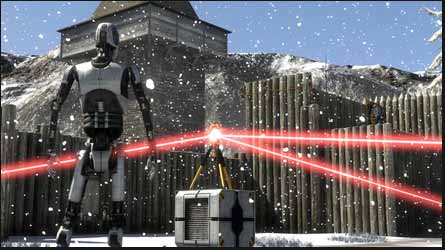 When you awaken you find yourself in a highly detailed representation of what looks like Roman ruins, I say that because the size and shape of the terracotta bricks are the same as those found all across the Empire. A disembodied voice greets you and introduces himself as ELOHIM and bids you seek him out in his garden. A quick play with the keys brings your hands into shot, only to discover that you’re not human, but apparently some form of robot, Pressing ‘H’ takes you out of first person perspective, confirming your robot status.
When you awaken you find yourself in a highly detailed representation of what looks like Roman ruins, I say that because the size and shape of the terracotta bricks are the same as those found all across the Empire. A disembodied voice greets you and introduces himself as ELOHIM and bids you seek him out in his garden. A quick play with the keys brings your hands into shot, only to discover that you’re not human, but apparently some form of robot, Pressing ‘H’ takes you out of first person perspective, confirming your robot status.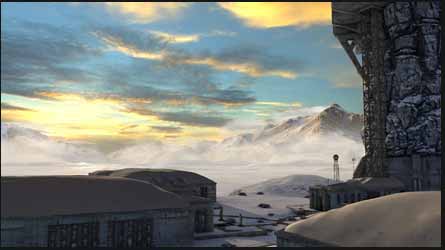 In the garden you’re faced with your first challenges. Passages are guarded by both roaming bots, which will kill you, and tracking machine guns. Not to worry, the jammers not only open otherwise blocked doors, they can also disable the bots and guns. The tricky part is that straight forward solutions would involve three jammers and you can only access two. The jammers can only open the blue shimmering barriers, but you can’t take them through the purple energy barriers. This brings the other main element of the game. Sometimes timing is everything, as if you’re careful you can skirt past some of the sentinels.
In the garden you’re faced with your first challenges. Passages are guarded by both roaming bots, which will kill you, and tracking machine guns. Not to worry, the jammers not only open otherwise blocked doors, they can also disable the bots and guns. The tricky part is that straight forward solutions would involve three jammers and you can only access two. The jammers can only open the blue shimmering barriers, but you can’t take them through the purple energy barriers. This brings the other main element of the game. Sometimes timing is everything, as if you’re careful you can skirt past some of the sentinels.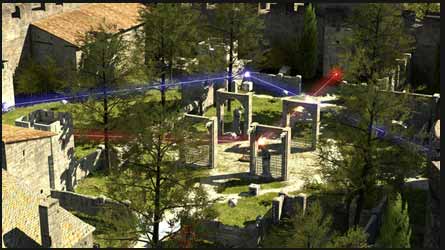 Without spoiling the plot for you, the game does question the nature of consciousness and the choices that come with this. In this, it is more of an existential experience, rather than questioning any particular theological or political ideology. It asks the question, what it is to have the power to choose even if those around you try to make you do what they want and believe what they believe?
Without spoiling the plot for you, the game does question the nature of consciousness and the choices that come with this. In this, it is more of an existential experience, rather than questioning any particular theological or political ideology. It asks the question, what it is to have the power to choose even if those around you try to make you do what they want and believe what they believe?